Strategy
Multidisciplinary Collaboration Programmes
In the first phase of SeRC, larger, multidisciplinary constellations have been prototyped through a multidisciplinary collaboration programme (MCP) promoting multidisciplinary approaches to strategic areas with high potential gain. With eCPC as SeRC’s first MCP flagship, followed by Visualisation In e-Science Applications and SESSI (SeRC Exascale Simulation Software Initiative), we will now build on these successes and further develop the MCPs by consolidating the SeRC efforts into larger constellations
A key requirement of MCPs is the existence of external third-party support contributing to the programme goals. These multiple funding streams are one component to ensure the sustainability of SeRC efforts. For 2015–2019, three additional MCPs have been started: Data-Driven Computational Materials Design, FAST Climate Science and Brain-IT.
Scientific Computing Lab
SeRC groups are engaged in computational method and infrastructure development, a necessary ingredient for worldclass computer-based science. With architectural changes, driven partly by the challenge to build exascale systems, these efforts need to be re-enforced and strengthened. Developments such as massively increased core-counts, large vector units, deep memory hierarchies, and similar advances require significant efforts in the development of efficient, scalable methods and implementations.
Such work is planned in the multidisciplinary collaboration programs referred to earlier. These constitute ideal cases for the SeRC vision of integrating researchers in the three pillars described earlier, with collaboration between application areas, e-infrastructure and methods researchers being facilitated by the e-Science experts in the “human e-cloud”.
Following international examples, for instance from NCSA at UIUC, we will prototype a scientific computing lab, where researchers from applications, methods, and infrastructure can collaborate efficiently in such an environment. A physical interaction space created close to PDC is a key component in this endeavour. With this lab, SeRC will build the nucleus of the “human e-cloud” identified as a key ingredient above.
Data-Driven Science
The data deluge that arises from new scientific instruments, large simulations, and data on the internet together with new technologies of how to handle and analyse these data has significant impact on e-Science methodology. SeRC is therefore embracing big data, with an initial emphasis on life science. This includes research regarding storage, management, integration, visualisation, and analysis of big data.
In recent years, new platforms and tools have appeared that can efficiently and cost-effectively store and process up to petabytes of data. This allows many organisations to handle data that previously was considered too expensive to store and manage. This data-driven science trend is transforming scientific research, by enabling data-driven discovery and prediction. The skills required for data analytics at large scale include data management on public and private clouds, data-parallel algorithms, and proficiency with a complex ecosystem of tools and platforms such as Hadoop. These skills are currently not widely available within the existing communities; one of the goals for SeRC is to help transfer knowledge on the use of methods and tools from data science to enable new research methodologies in other SeRC communities.




